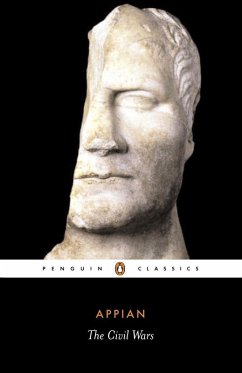
The History of the Jewish People & The Jewish-Roman Wars (eBook, ePUB)
The Antiquities of the Jews & The History of the Jewish War against the Romans
Übersetzer: Whiston, William

PAYBACK Punkte
0 °P sammeln!
"The History of the Jewish People" or The Antiquities of the Jews is a 20-volume historiographical work composed by Flavius Josephus in the 13th year of the reign of Roman emperor Flavius Domitian. The book contains an account of history of the Jewish people, written in Greek for Josephus' gentile patrons. In the first ten volumes, Josephus follows the events of the historical books of the Hebrew Bible beginning with the creation of Adam and Eve. The second ten volumes continue the history of the Jewish people beyond the biblical text and up to the Jewish War. This work provides valuable backg...
"The History of the Jewish People" or The Antiquities of the Jews is a 20-volume historiographical work composed by Flavius Josephus in the 13th year of the reign of Roman emperor Flavius Domitian. The book contains an account of history of the Jewish people, written in Greek for Josephus' gentile patrons. In the first ten volumes, Josephus follows the events of the historical books of the Hebrew Bible beginning with the creation of Adam and Eve. The second ten volumes continue the history of the Jewish people beyond the biblical text and up to the Jewish War. This work provides valuable background material to historians wishing to understand 1st-century AD Judaism and the early Christian period. "The Jewish-Roman Wars" or The War of the Jews is a history book by Flavius Josephus about antique wars between Romans and Jews. Divided into seven books, it opens with a summary of Jewish history from the capture of Jerusalem by the Seleucid ruler Antiochus IV Epiphanes in 164 BC to the first stages of the First Jewish-Roman War (Book I and II). The next five books detail the unfolding of the war, under Roman generals Vespasian and Titus, to the death of the last Sicarii. Titus Flavius Josephus was a first-century Romano-Jewish scholar, historian and hagiographer, who was born in Jerusalem-then part of Roman Judea-to a father of priestly descent and a mother who claimed royal ancestry. He initially fought against the Romans during the First Jewish-Roman War as head of Jewish forces in Galilee, until surrendering in 67 CE to Roman forces led by Vespasian after the six-week siege of Jotapata. After Vespasian became Emperor in 69 CE, he granted Josephus his freedom, at which time Josephus assumed the emperor's family name of Flavius. He fully defected to the Roman side and was granted Roman citizenship. Josephus recorded Jewish history, with special emphasis on the first century CE and the First Jewish-Roman War, including the Siege of Masada. His most important works were The Jewish War (c. 75) and Antiquities of the Jews (c. 94).
Dieser Download kann aus rechtlichen Gründen nur mit Rechnungsadresse in A, B, BG, CY, CZ, D, DK, EW, E, FIN, F, GR, H, IRL, I, LT, L, LR, M, NL, PL, P, R, S, SLO, SK ausgeliefert werden.













